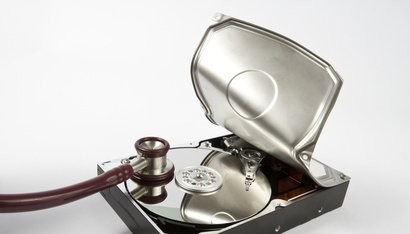
Cybersecurity in healthcare - Why there needs to be more concern
Cybersecurity has become a huge concern for the healthcare industry in more ways than one. Forbes reported that in 2011, Jerome Radcliffe, a diabetic, demonstrated how his wireless insulin pump could be hacked at a Black Hat cybersecurity conference.
The Internet has become integrated in a variety of mechanisms, including medical devices. With the various cyberattacks that occurred last year, there is cause for concern with regard to how vulnerable those devices are.
Looking at medical equipment and cybersecurity together
Health IT Security reported that new technology has allowed cybercriminals to gain access to private medical information. Digital patient records have always been a factor for the healthcare industry, and this was addressed with the creation of HIPAA laws. However, with rising technology, it's not certain if HIPAA can keep up with hackers' complex tactics.
Similarly, security guidelines are in place for companies that create medical devices, but they may be outdated for the technology these firms are producing.
"These security measures ensure that companies which are developing these products are adhering to a certain set of standards to keep users safe," Benjamin Caudill, principal consultant with Rhino Security Labs, told Forbes.
The source called for better restrictions and cybersecurity for medical devices. Many people seem unconcerned about the risk of breaches related to the Internet of Things, but this should be taken as seriously as the Sony hack.
Involving healthcare with cybersecurity
The Internet of Things is the concept behind the integration of Internet and medical devices. Forbes mentioned that while the idea of someone shutting off an embedded device might seem unbelievable, many thought the same thing about hackers and cloud storage.
"While many everyday products – from toys to automobiles – are recalled for safety hazards, recalls for cybersecurity vulnerabilities have not yet been seen," Caudill said. "I suspect as the issues become more well-known (and even cause physical harm to victims), this trend will change, with both manufacturers and government officials seeing cyber security as another category of safety to consider in Internet-connected products."
While cybersecurity for medical devices might be the last thing on people's minds, it's crucial for the healthcare industry to involve the law. The source emphasized how medical equipment was never within the realm of consideration for cybersecurity, but now, that needs to change.
Post-Exit Tech Founder | CEO | Former ServiceNow | I help create resilient enterprises w/ people, processes, & technology
9yOne of the biggest challenges is to keep Doctors focused on providing safe and efficient care. Many Doctors are now faced with addressing these issues in their practices. Ignorance is not an option.
Cyber Professional | Entrepreneur | Veteran
9yIt is no longer enough to follow HIPAA regulations for security of health and personal information. If all you do is the minimums to meet these requirements, you should expect a breach. Even more importantly is the doctor's knowledge and patient awareness of what is going into their bodies.